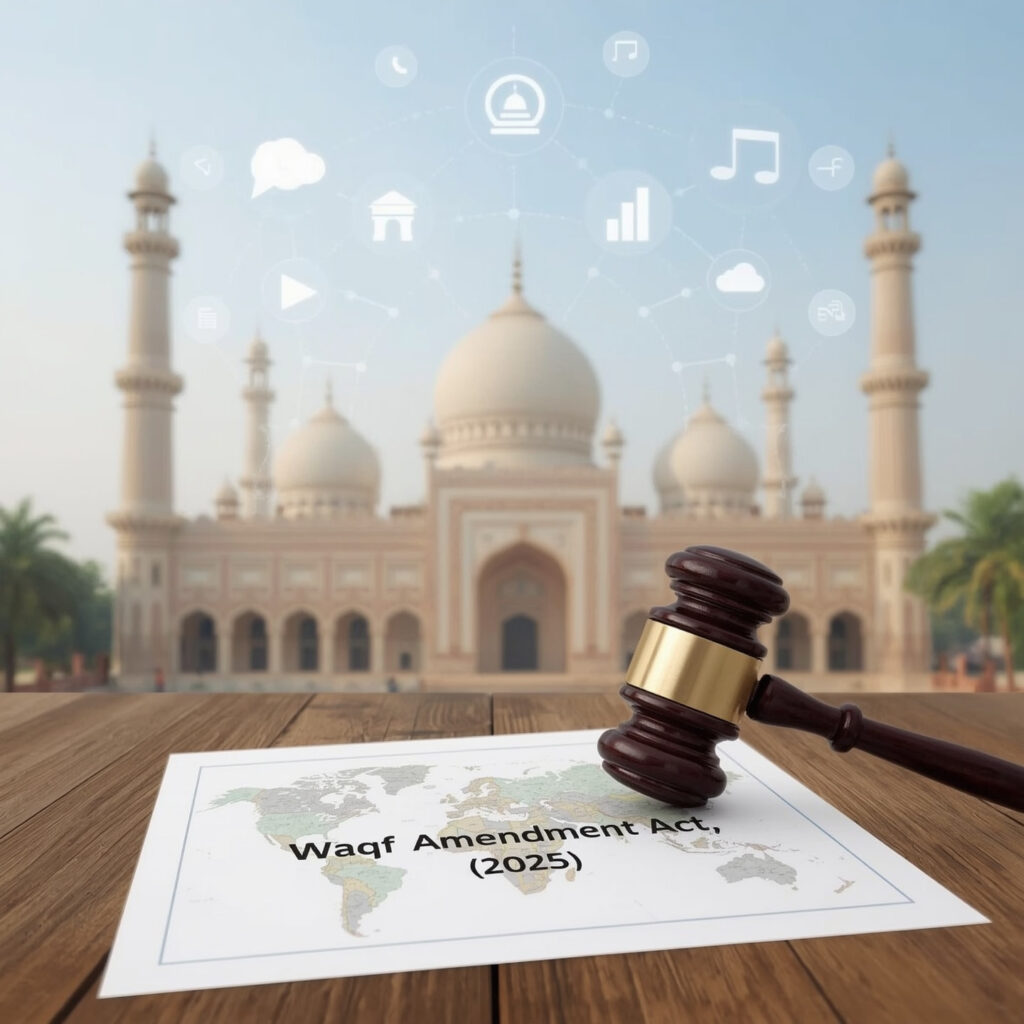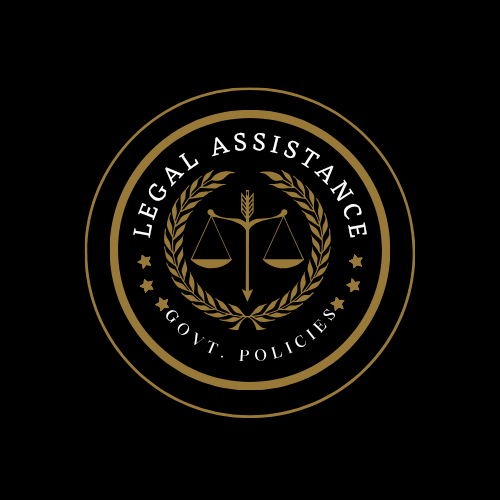Introduction to the Waqf (Amendment) Act, 2025
Property digitization in India, the Waqf (Amendment) Act, 2025 introduces vital updates to the laws governing Waqf properties in India—assets set aside under Islamic law for religious and public welfare purposes. These properties often include mosques, schools, hospitals, and revenue-generating buildings. This reform was urgently needed. The previous framework had gaps: outdated records, lack of transparency, and disputes over land and lease rights. The amendment tackles these problems head-on by digitizing processes and strengthening accountability across the system.

Property digitization in India
Understanding Waqf and Its Legal Background
A Waqf is a donation of property that is held in perpetuity for the benefit of the public or for religious activities. Once registered, that property is no longer privately owned—it belongs to the community and is protected by law. Types of Waqf Assets include Sacred/Religious (Places of worship, burial grounds), Public Benefit (Schools, orphanages, health centers), and Commercial (Shops, complexes, or land used to generate funds for community service).
Why This Amendment Was Introduced
India’s Waqf system faced many challenges:lack of centralized data, unauthorized occupancy, complex legal procedures, and limited public access to information. The 2025 update addresses these concerns by aiming to modernize the administration of Waqf estates, make records accessible and tamper-proof, and speed up the resolution of related disputes.
Major Reforms Introduced
Digital Documentation of Properties: Every Waqf property is now required to be digitally catalogued. Advanced mapping tools like Geographic Information Systems (GIS) will track exact locations, minimizing tampering and land grabbing. Faster Legal Resolutions: Waqf Tribunals have been overhauled with stricter deadlines and better technology. New Legal Penalties: Trustees may face fines of up to ₹10 lakh or imprisonment for non-compliance.
What It Means for Waqf Beneficiaries
| Benefit | Impact |
|---|---|
| Digital Mapping | Reduces disputes and increases clarity of land boundaries |
| Timely Dispute Resolution | Protects Waqf property from prolonged legal battles |
| Central Registry | Enables public access to verified Waqf property records |
| Stronger Enforcement | Deters illegal occupation and strengthens legal safeguards |
| Improved Accountability | Builds trust in Waqf institutions and community welfare |
Beneficiaries—people who rely on services supported by Waqf revenues—stand to gain the most. The reforms aim to cut down misuse of donations, offer clearer access to aid, and make trustee spending reports publicly accessible.
Expectations for Trustees and Mutawallis
Trustees are now required to maintain property usage logs, pass certification or training programs, and comply with annual audits. Non-performance or fraud could lead to removal and legal action.
For Those Who Rent Waqf Property
If you occupy or run a business on Waqf-owned land, you must hold a valid lease, avoid unauthorized sub-letting, and ensure all renewals meet documentation rules.
How State Waqf Boards Must Now Operate
Waqf Boards must now conduct field inspections, publish real-time updates online, and hire licensed auditors. Failure to comply could trigger administrative action.
Dispute Settlement Made Easier
Tribunals now operate under strict timelines, support online petition filing, and resolve community-level disputes with less red tape.
How Technology Powers the New System
Major tech upgrades include an online Waqf portal, satellite mapping for property boundaries, and mobile tools for real-time issue reporting.
| Technology Feature | Role in the New Waqf System |
|---|---|
| GIS Mapping | Precisely identifies and digitally outlines all Waqf property boundaries |
| Online Property Registry | Enables public access to real-time information on Waqf assets |
| Digital Dispute Redressal | Allows for faster, documented resolution of land and ownership conflicts |
| Cloud Data Storage | Safeguards all property records with remote backups and easy retrieval |
| Audit Dashboards | Provides analytics and accountability tools for board monitoring |
Ensuring Public Oversight and Trust
To rebuild credibility, financial audits and land data are publicly available. Individuals can report misconduct anonymously. All board decisions are logged for transparency.
What Experts and Critics Are Saying
Supporters believe the act corrects long-standing flaws and modernizes the Waqf system. Critics caution that too much oversight could hinder community control and create new bureaucratic hurdles.
How Other Countries Handle Waqf Management
Malaysia uses centralized online records. Turkey has state-supervised revenue management. Indonesia finances social projects via Waqf banks. India’s model incorporates lessons from these systems.
Who’s Affected and How
Community
| Group Affected | Impact of the Amendment |
|---|---|
| General Public | Increased access to Waqf-funded educational and social welfare programs |
| Muslim Community | Better protection and use of community religious and charitable assets |
| Waqf Board Staff | Stronger legal authority and resources to manage Waqf lands effectively |
| Illegal Occupants | Risk eviction and penalties under new enforcement measures |
| Social Reformers & NGOs | Gain more data and transparency to support accountability and reforms |
- Beneficiaries: Can track funding and report problems.
- Tenants: Must comply with new lease rules.
- Trustees: Must attend training and maintain digital records.
Conclusion
The Waqf (Amendment) Act, 2025 is a transformative legal update. By introducing transparency, digitization, and accountability, it ensures that Waqf properties benefit the public as intended. Stakeholders at all levels—tenants, trustees, and citizens—must understand and adapt to the new law to safeguard these vital resources.
Related read:
•Understanding the Consumer Protection Act
•How to Register Your Business Online in India
•5 Reasons to choosing Rocket lawyer or Legalzoom for you
FAQs
1.Why is this amendment important?
It closes loopholes and modernizes systems.
2.What happens to illegal tenants?
They must regularize leases or face legal action.
3.Can trustees be penalized?
Yes, for financial or procedural violations.
4.How can citizens check property details?
Via the Waqf portal.
5.Can donations be tracked?
Yes, with digital receipts and reports.
